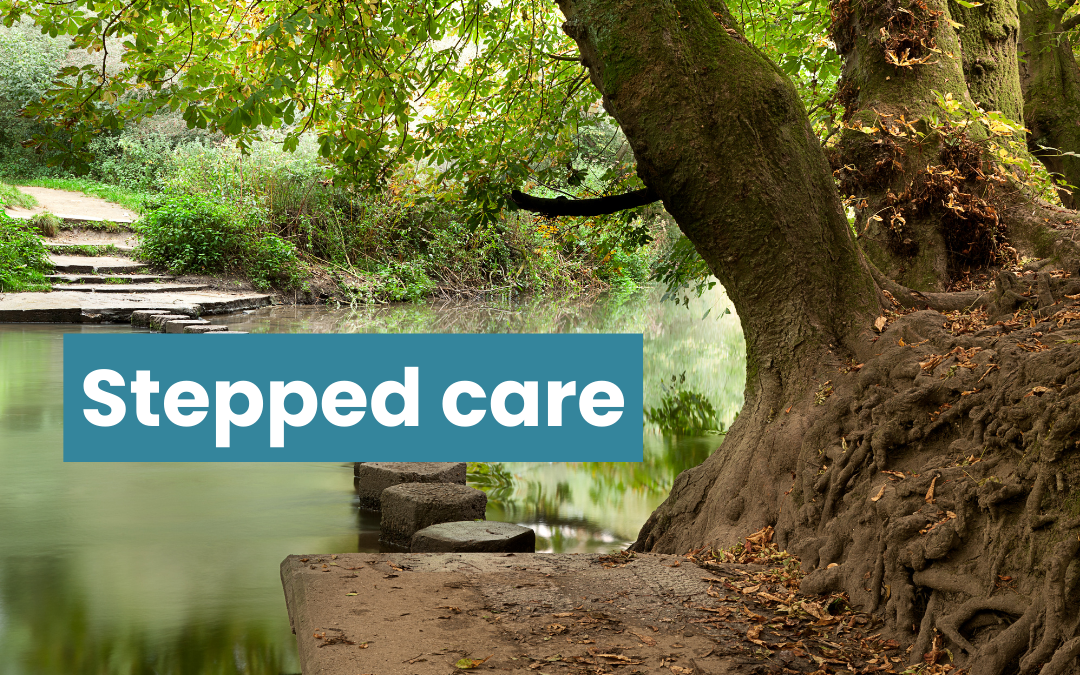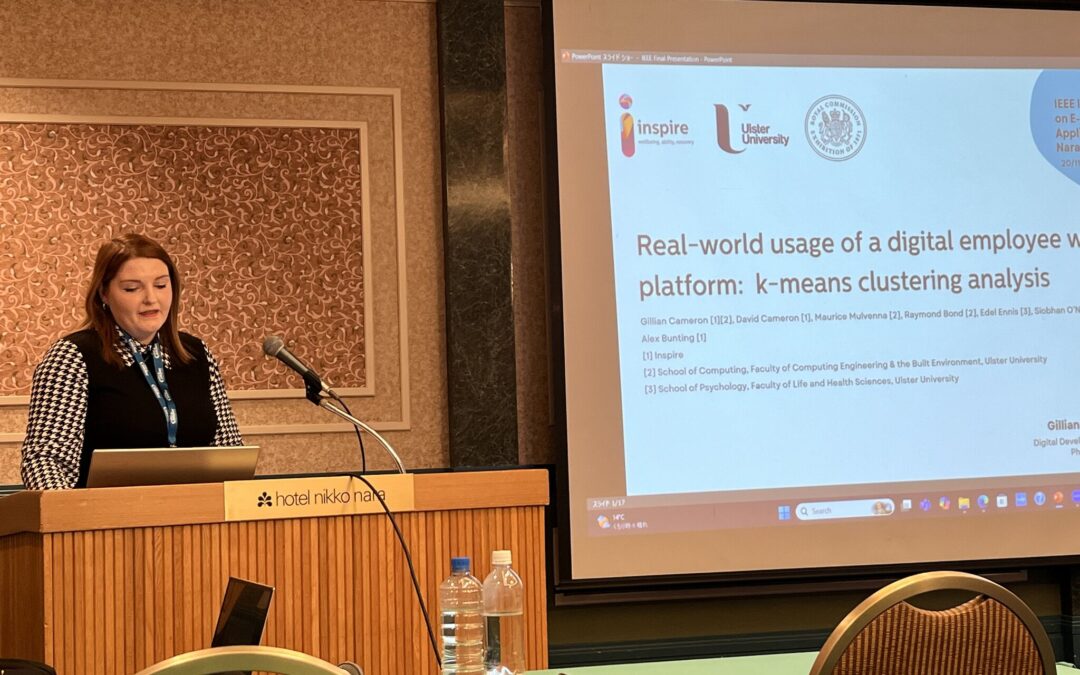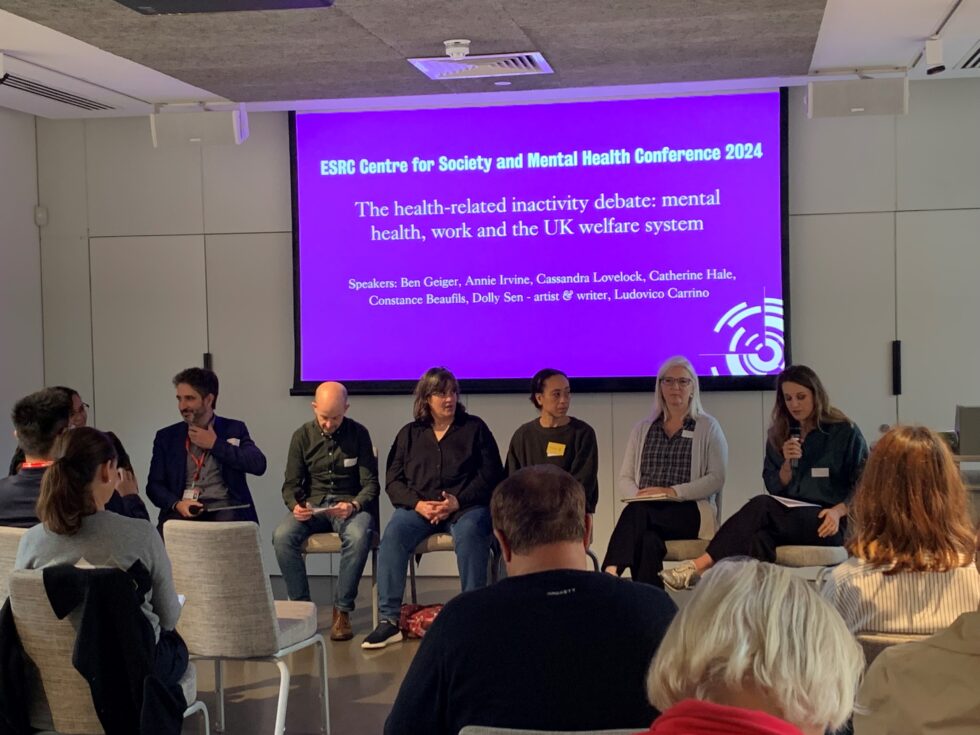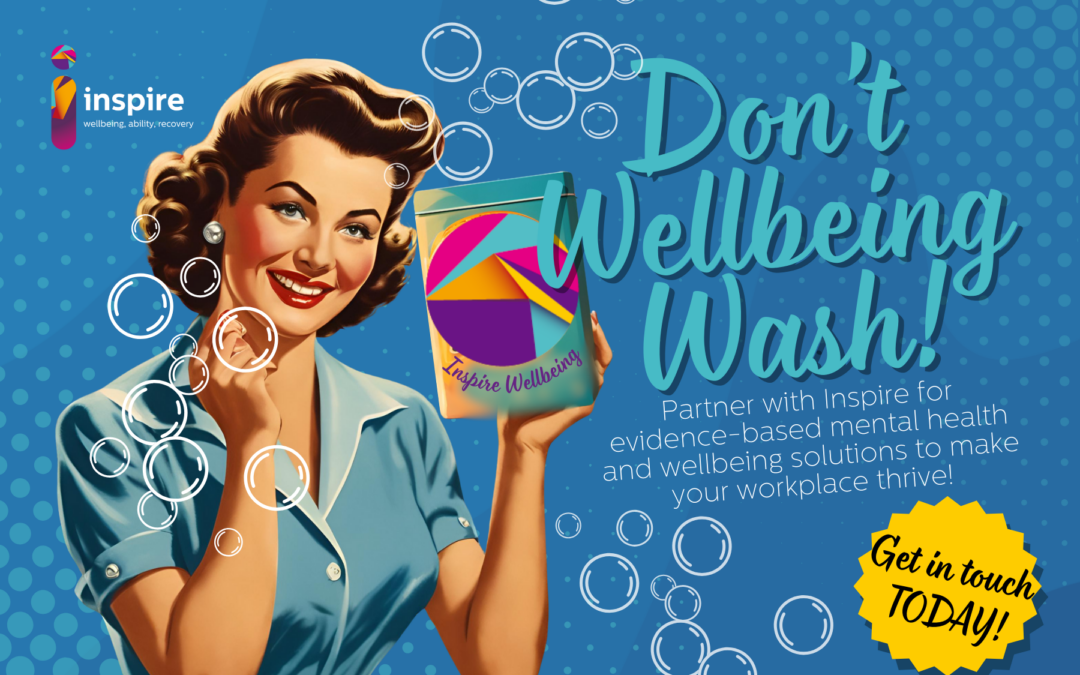Gavin Megaw, Assistant Director of Inspire’s professional services explains why the stepped care model is so central to Inspire’s way of working.
In Inspire we think a good way to consider mental health is that we all have it and we will fluctuate on a spectrum between thriving in good health through to struggling and potentially being unwell. While this does not mean everyone will experience mental illness, everyone will have periods of time when they struggle with their mental wellbeing.
When we consider this from a workplace perspective, we recognise that organisations are routinely facing into a wide range of challenging situations relating to mental health in the workplace. How an organisation approaches and manages these situations, whilst influenced by a host of factors such as leadership, resourcing and policy, will really play a defining role in shaping the organisational culture.
An essential ingredient in being able to manage mental health in the workplace effectively is to ensure that the organisation, management and staff have the necessary tools to effectively address the wide range of issues presenting through the workplace. With this in mind, and in order to provide the most appropriate and effective support at every opportunity, Inspire has adopted a stepped care approach to workplace wellbeing.
Understanding stepped care and its role in workplace wellbeing
Stepped Care is a clinically proven model for delivering mental health and wellbeing support that focuses on ensuring the most appropriate and effective support is offered first, with people “stepping up” to more intensive support as required. At its heart is the belief that a person in distress should never be under or over treated.
It’s sometimes easier to think about stepped care in regards to physical healthcare than to mental healthcare. If a child in your care fell off a bike and injured their knee, what would you do?
- Would you phone a doctor?
- Would you call for an ambulance?
- Would you tell them to get back on the bike and stop crying?
Chances are, you’d take a look at the injury, assess the damage and make a decision based on the results of this assessment.
And that’s exactly what the stepped care model does in treating mental health conditions. Its goal is to ensure a person receives the most appropriate treatment for their injury and to allow for continual reassessment as the person’s needs change.
The model typically used in healthcare settings has 5 steps ranging from prevention and promotion through to specialist crisis, in-patient services.
Stepped care at Inspire
At Inspire we use the stepped care model to develop recovery for people who use all our services. The model ensures we deliver care to meet the individual needs of all our customers from the business owner to the person living in supported housing. It’s a way of making sure that people get the support they need, when they need it and with the most efficient use of resources.
In the workplace, our aim is to help organisations build a bespoke package of mental health and wellbeing support so that when an employee ‘falls off their bike’ our expert team can assess their needs and decide on the most effective course of treatment to help that person recover. And if it seems like the problem is with the bike, or the track and not the rider, our team will design and deliver a strategy for effectively addressing those issues.
For workplace customers, Inspire’s stepped care model means
- we can build bespoke wellbeing strategies to meet the needs of a wide variety of customers
- you can be confident that clinical best practice is at the heart of all our services
- you know that a wide range of mental health and wellbeing needs can be delivered through one expert provider
- we can build organisational resilience through our expert training and consultancy provision
- we can provide specialist mental health services for people experiencing more serious psychological distress
- your HR and staff team have access to expert guidance to help them service your mental health and wellbeing needs
Inspire’s stepped care services
Inspire has a long history in designing and delivering evidence-based, best practice mental health services. This means we are ideally placed to deploy these expert services across steps 1, 2 and 3 of the model, including our training, consultancy and specialist mental health interventions, for organisations across Ireland.
Inspire’s step 1 services
Our step 1 services focus on promoting mental health and keeping everyone in your organisation well. They are the building block for wellbeing within an organisation and include
- Digital resources, tools and self-help programmes to aid recovery
- Training and awareness raising to promote mental health and wellbeing
- Promotion of healthy lifestyles and coping skills like resilience and mindfulness
- Resolving conflict in the workplace
Inspire’s step 2 services
Our step 2 services provide solution-focused help and support when it’s needed. They include
- An employee assistance programme (EAP) that can provide
- Brief solution-focused therapy
- Financial and legal advice
- Dispute resolution and conflict management
- Group support and reflective practice sessions
Inspire’s step 3 services
Our step 3 services are specialist mental health interventions to support people with complex and changing needs who are dealing with moderate to severe mental health conditions. They include
- Critical incident support management
- Group based supervision and support
- Psychological assessment and recommendations
- Eye movement desensitisation and reprocessing therapy (EMDR)
- Trauma-focused cognitive behavioural therapy (CBT)
- Psychotherapy
We are really confident in the effectiveness of this approach, and can demonstrate exceptional outcomes for both clients and customers. However, in order to do so, it is essential that we have the support of leadership at the outset. We have to harness the right culture in the workplace and senior leaders are pivotal to making sure that health and wellbeing is embedded into organisational strategy and day-to-day people management practices.
If we want to work towards creating positive and supportive workplace culture, free from stigma, where employee wellbeing can flourish, we will need leaders who recognise and invest in the crucial role of mental health and wellbeing at work.
Contact our team if you’d like to know more about how Inspire’s stepped care model of workplace wellbeing can support your organisation.
More from our blog
Menopause and work
The menopause is a natural biological process. It occurs when your ovaries age and naturally produce lower levels of reproductive hormones. The menopause may have a significant impact on home life and work performance. This can be unsettling, particularly if a particular role carries lots of responsibility. The hormonal changes…
Winter wellbeing 2024
The festive season is here and we’re keen to highlight some wellbeing tips for now and the New Year. Head into 2025 in the best possible frame of mind. Switch off Technology allows us to be constantly connected to colleagues, family and friends. That is often a good thing but…
Reflections on IEEE eHealthCom 2024: Insights, Innovation, and Inspiration in Nara, Japan
Inspire’s Digital Development Lead, Gillian Cameron, reflects on her recent trip to Nara, Japan for the IEEE eHealthCom conference. Last week, I had the privilege of attending and presenting at the IEEE eHealthCom 2024 conference in Nara, Japan. This annual event brings together researchers, industry leaders, and policymakers to discuss…
Mental Health on the Agenda at King’s College London
Inspire’s Policy & Campaigns Office, Matthew Coyle, reflects on his recent trip to King’s College London and the knowledge gained at the ESRC Centre for Society and Mental Health’s annual conference. I had the privilege earlier this month of attending the ESRC Centre for Society and Mental Health’s third annual conference in…
Healthy Organisations Commit to Person-Centred Wellbeing
Employment takes up a good deal of our time. According to the Office of National Statistics, the average UK worker spends over 36 hours in work every week; in Ireland, that figure is 38.5. On World Mental Health Day, understand the effect that wellbeing washing can have on workers and…
On World Mental Health Day, Here’s How to Avoid Wellbeing Washing
As we count down to World Mental Health Day on 10th October, Inspire’s focus is very much on our ‘Don’t Wellbeing Wash’ campaign. Wellbeing washing is similar to green washing, its arguably more infamous cousin. It describes a company or organisational ethos that focus more on the illusion of staff…
World Mental Health Day: Don’t Wellbeing Wash
World Mental Health Day (WMHD), which takes place every year on 10th October, offers us all an opportunity to gather and talk about mental health, demonstrating to everyone that this is a subject worthy of open, honest discussion and explanation. In 2024, Inspire is marking WMHD by highlighting the important issue…
Government Action on Work-Life Balance a Positive Sign
The UK Government has announced plans to introduce new codes of practice for businesses, which are aimed at tackling burnout and codifying a right to switch off. This follows on from Labour’s campaign pledge to empower workers, providing them with the freedom to disconnect from their jobs outside regular hours and…
Line Managers are Key to Workplace Wellbeing
According to new research published by Queen’s University Belfast and the University of Nottingham, strong links exist between positive business performance and mental health training for line managers. Furthermore, the analysis of workforce practices suggests that recognising this, and acting on it, could save organisations millions every year. The study…
Workplace Conflicts Require Proactive Approach
Discord between colleagues is not unusual. The average workplace brings together individuals from different walks of life, people with distinct characteristics, objectives, points of view and ways of doing things. Quarrels are bound to develop from time to time. They can, however, have a significant impact on an organisation’s productivity,…
CIPD Conference Stresses Authentic, Empathetic Leadership
Inspire\'s Noelle Higgins, Business Development Manager – Therapeutic Services reflects on the recent CIPD conference and research. My colleague Jonathan Cody and I recently took the opportunity to head to the CIPD conference at the RDS, enjoying a day away from our e-mails and catching up with a range of…












